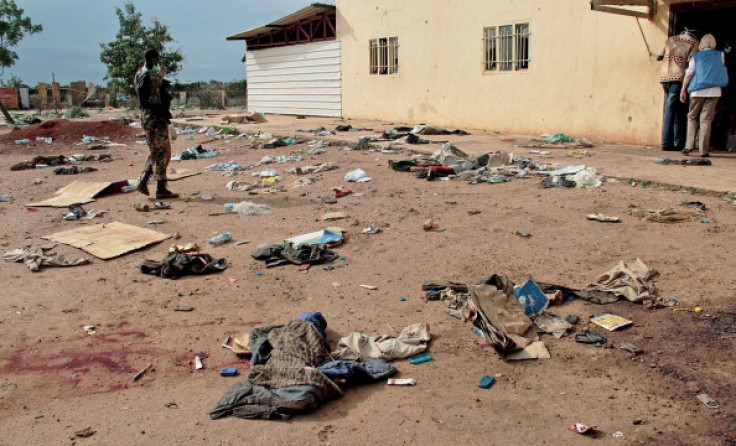Unmiss 'gave weapons to SPLM-IO forces' who later committed atrocities in Bentiu, claims research group
UN mission allegedly gave arms to SPLM-IO general James Koang, whose troops 'massacred' civilians in Bentiu.
A research group has alleged the UN mission in South Sudan (Unmiss) gave weapons to South Sudanese rebels later accused of massacring people after war broke out in the country in 2013. The Geneva-based Small Arms Survey claimed Unmiss gave weapons to top rebel general James Koang.
Violence erupted in South Sudan when President Salva Kiir, of the Dinka ethnic group, fired his deputy Riek Machar, from the Nuer group, from his cabinet.
Machar became the leader of the opposing faction Sudan People's Liberation Movement-in-Opposition (SPLM-IO), pitted against SPLM-Juba, led by Kiir.
Following Machar's dismissal, ethnic-related violence targeting Dinka and Nuer spread.
"On at least two occasions in December 2013, UNMISS gave these weapons to the SPLM–IO, reportedly because they had had good relations with James Koang Chuol – who had just declared himself military governor of the state – before the outbreak of the conflict," read the report.
"UN headquarters in New York blocked later UNMISS leadership in Juba from transferring weapons seized in their bases to the government, for the sake of preserving an appearance of neutrality."
Unnamed Unmiss officials were quoted as saying: "James Koang asked us to give him back the weapons we had confiscated and we accepted. We never thought the government would be back" and "We had asked Juba for guidance on the issue but received no instructions, so we gave them the weapons. We didn't want to keep them around in such a tense situation."
Right groups claimed Koang 's troops killed hundreds of civilians sheltering in a mosque and a hospital in the town of Bentiu, in Unity State, in April 2014.
IBTimes UK's exclusive interview with Machar:
Koang confirmed opposition forces had killed some people in Bentiu, but maintained the victims were not civilians, but members of the Justice and Equality Movement (JEM), a Sudanese opposition group.
Both the UN and the US have imposed sanctions on Koang, with the US Treasury department accusing the general of leading forces who "targeted civilians, including women and children, with killing, sexual violence and attacks on schools, hospitals, religious sites, and locations where civilians were seeking refuge."
Unmiss, which has been accused by Juba of supporting rebels, has not replied to a request for comments on the allegations.

Unmiss 'failure to protect civilians' amid genocide warnings
The report emerged months after the nearly 14,000-troop-strong Unmiss was accused of not doing enough to protect civilians during violence that left at least 300 people dead in the capital Juba in July.
Following the allegations of inaction, a UN probe concluded Unmiss had failed to protect civilians due to "a lack of leadership on the part of key senior mission personnel".
The probe resulted in the sacking of Unmiss chief, Kenyan Lieutenant General Johnson Mogoa Kimani Ondieki. The dismissal angered Kenya, which decided to withdraw its troops from the UN peacekeeping mission.
Following July's violence, the conflict has spilled into the Equatoria region, where several rebels are sheltering.
On 15 December, the country marked the third anniversary since war broke out.
The conflict has caused the deaths of at least 50,000 people, amid allegations of crimes against humanity committed by both sides, including rape, torture and the use of child soldiers. The UN has warned the country is on the brink of a 'Rwanda-style' genocide.
Millions of South Sudanese civilians are also displaced and are facing severe food shortages due to a man-made famine.
© Copyright IBTimes 2024. All rights reserved.






